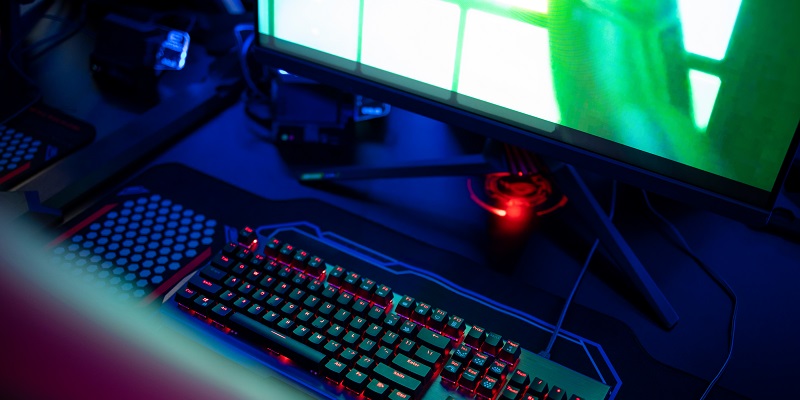The gaming industry has always been at the forefront of technological innovations, and the rise of artificial intelligence (AI) is no exception. With the increasing popularity of OpenAI’s chatbot ChatGPT and other AI-powered technologies, the industry is poised to take advantage of the many advancements in machine learning and natural language processing. In particular, Animoca, a global leader in digital gaming and blockchain technology, is blazing a trail in the integration of AI and blockchain in gaming, from incubating AI companies to developing innovative AI tools to enhance non-player characters (NPCs) in blockchain-based games.
Animoca’s involvement with AI
According to Yat Siu, co-founder, and chairman of Animoca, the company has been involved with AI for a long time, both through incubating AI companies and utilizing it in game development. Animoca has incubated several AI-focused startups, including Zeroth, a leading accelerator for AI startups, and DeepBrain Chain, a decentralized neural network platform. Animoca has also utilized AI in developing its games, such as The Sandbox, a blockchain-based virtual world where players can create, share, and monetize their content.
The Potential of Generative Art
One of the most promising applications of AI in gaming is the use of generative art. This technology has the potential to dramatically increase the productivity of art teams by automating the creation of artwork for games. As Siu puts it, “It’s like giving farmers tractors instead of horses.” This approach can help game developers create rich and complex game worlds with greater efficiency and speed, freeing up time for other aspects of game development.
AI Tools for Enhancing NPCs
One of the key areas where AI is making an impact in gaming is in the development of tools for enhancing NPCs. These non-player characters play a crucial role in creating immersive game worlds, but creating believable and engaging NPCs can be a difficult and time-consuming task. AI-powered tools can help to automate many of the processes involved in creating NPCs, from generating personalities and behaviors to handling conversation and interaction with players. By using AI to enhance NPCs, game developers can create more engaging and immersive game worlds.
The relevance of AI integration in blockchain-based games
When games are based on blockchain, AI integration becomes even more crucial. Blockchain technology provides many advantages over traditional gaming architectures such as increased security, transparency, and interoperability. AI can help further enhance these benefits by providing intelligent and adaptive behavior for game elements, such as NPCs and in-game economy systems. By combining blockchain and AI technologies, game developers can create more secure, transparent, and engaging games.
The symbiotic relationship between AI and blockchain
As Siu points out, AI has a very symbiotic relationship with blockchain. By combining these two technologies, game developers can create games that are smarter, more secure, and more dynamic. For example, AI-powered non-playable characters (NPCs) can access and use blockchain-based assets and services, such as in-game currency, to provide rich and complex gameplay experiences. Similarly, blockchain technology can provide a secure and transparent platform for AI-powered processes, such as machine learning and natural language processing.
The use of cryptocurrency in transactions between NPCs on blockchain games
Siu also points out that transactions between Non-Playable Characters (NPCs) on a blockchain game will likely use cryptocurrency for transactions. This is because blockchain-based games are typically designed to use cryptocurrency as their primary in-game currency, with players able to earn and spend cryptocurrency in the game world. NPCs can also participate in these transactions, creating a fully decentralized and autonomous game economy.
The Potential of AI-Enhanced Games to Create Active NPCs and Blockchain-based Systems
If AI-enhanced games can create active and blockchain-based NPCs that are capable of making transactions, Siu believes it would be equivalent to having lots of employees that never sleep. This could revolutionize the gaming industry, creating game worlds that are constantly evolving and adapting to player behavior and preferences. By using AI to enhance the intelligence and behavior of NPCs, game developers can create games that are more immersive and exciting than ever before.
The Importance of Regulatory Clarity for Emerging Technologies in Gaming and Metaverse Industries
When asked about the implications of regulations on the gaming and metaverse industries that use emerging technologies such as AI, blockchain, and cryptocurrencies, Siu says he welcomes regulations for the sake of clarity. He believes that regulatory clarity can help build investor confidence, providing a more stable platform for the development and deployment of emerging technologies in the gaming industry. When investors have a clear understanding of the rules, they feel more comfortable investing in an industry that has a lot of uncertainty.
The potential for AI to revolutionize the gaming industry is enormous, and Animoca is at the forefront of this innovation. By incubating AI companies, developing AI tools for game development, and integrating AI and blockchain technologies, Animoca is leading the way in creating immersive, engaging, and intelligent game worlds. As the gaming industry continues to evolve and embrace new technologies, we can expect AI and blockchain to play an increasingly important role in shaping the future of gaming. The opportunities for innovation and growth are endless, and Animoca is poised to take full advantage of this exciting new era in gaming technology.

